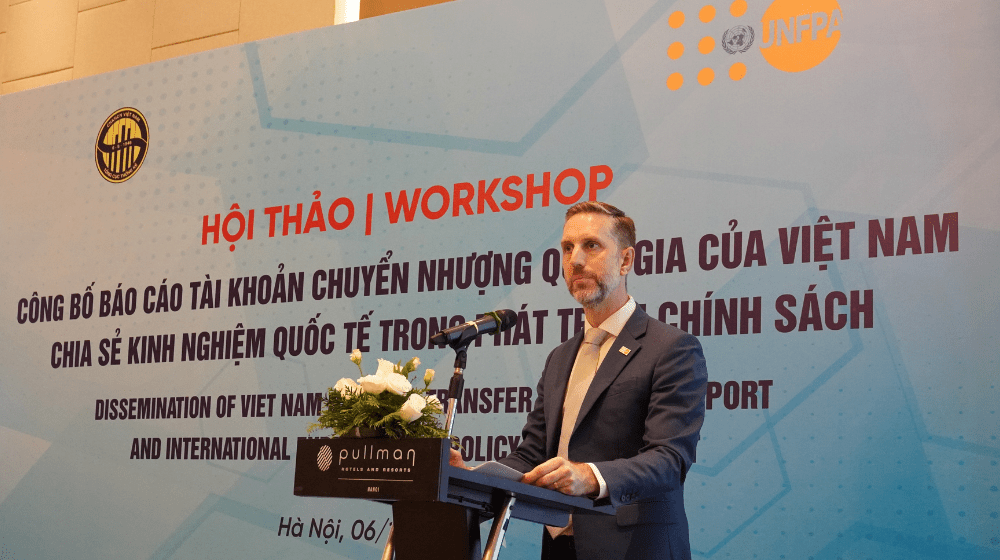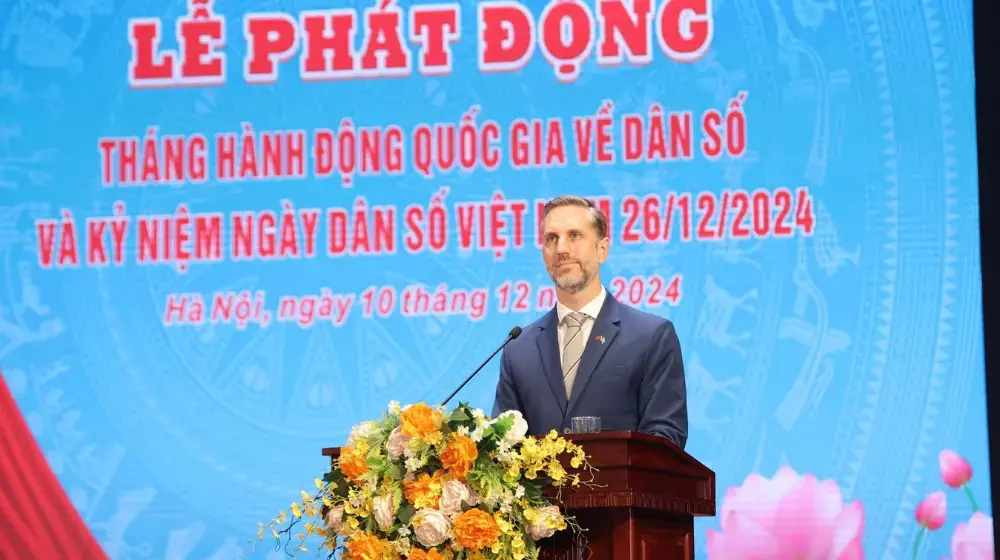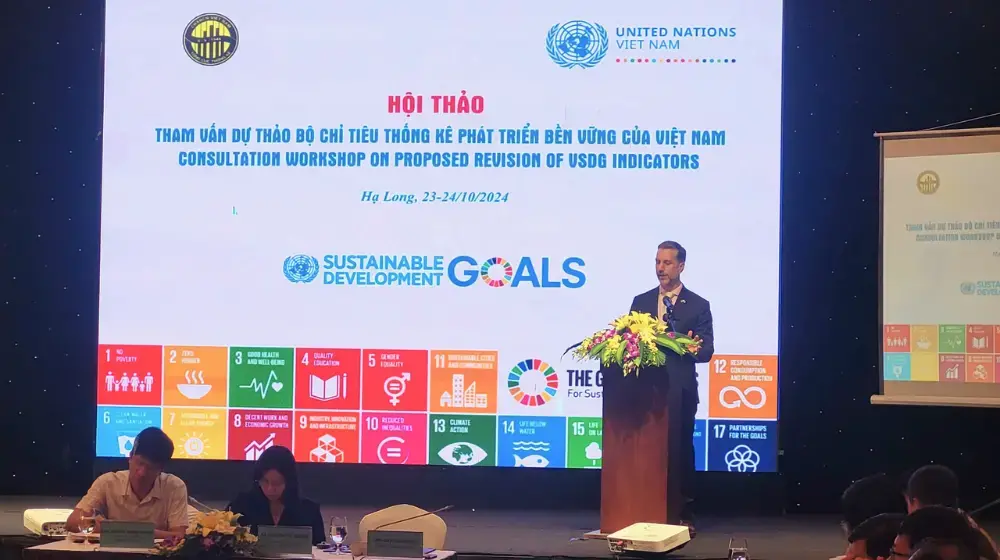- Dr Nguyen Thi Huong, Director General of the General Statistics Office;
- Representatives from Government’s Ministries and Agencies; international organisations and academic institutes and universities;
- International and national statistics experts including those attending online
- Local media and UN colleagues.
Xin chào quý vị; Good morning, everyone
It’s my honour to be at today’s workshop. This is a milestone to disseminate the conclusions and recommendations of the newly – completed report on Viet Nam’s National Transfer Accounts, a comprehensive and systematic method used to analyse the economic lifecycle in order to better understand population generations and demographic characteristics. We will also hear international experience and lessons learnt in constructing and utilising the National Transfer Accounts from across the region.
My thanks to the General Statistics Office and particularly Dr Nguyen Thi Huong for your collaboration and trust in UNFPA. During our first meeting you stressed that GSO needs international expertise in specific statistical research to ensure data quality. I hope that today is one of many opportunities where I aim to fulfil that request.
I also want to congratulate the research team for completing this report. As a tangible outcome of the partnership between UNFPA and GSO, we are happy to support the development of the National Transfer Accounts (NTA) tool, and the training to build national capacity in data analysis.
I also thank Professor Sang Hyop Lee, Professor and Chair in the Department of Economics at the University of Hawaii at Manoa for training GSO researchers and for leading this research. And special thanks to all national and international experts, as well as our colleagues from UNFPA’s Regional Office and Head Quarters for providing technical support during the development of the NTA Report.
Dear participants,
By 2050, the proportion of older persons aged 60 and above in the Asia-Pacific region is projected to increase from about 14% in 2022 to nearly 26%. The proportion of children under 14 will move in the opposite direction decreasing from 23% to 17%. This shift from a young to an aged society has multifaceted consequences at national, regional, and global levels. We need to start preparations now to take advantage of changes to ‘business as usual’ economic development.
The 2019 population pyramid in Viet Nam shows that the country is currently in the demographic window of opportunity. In other words, Viet Nam has the advantage of tapping the “demographic dividend”. This is projected to end by 2039. However, Viet Nam is one of the most rapidly ageing countries in the region and worldwide. The country's transition from “population ageing” to “aged population” will be much shorter than for many other countries.
Experience from other countries shows that population policies are often underrated in terms of their importance, resulting in numerous demographic consequences that can negatively impact the socio-economic development of nations. Prioritising investment in these areas not only benefits societies and communities but also avoids the additional costs of addressing related challenges later on.
Therefore, additional investment in the research for National Transfer Accounts to generate evidence on the economics of population aging is needed. It helps develop policies and interventions that prepare for an ageing population. NTA provides a way to assess the impact of demographic changes including on national income and public spending, consumption, saving, and investment. This data helps policymakers address important policy questions related to economic growth, fiscal sustainability, and generational equity.
Viet Nam’s NTA report indicates that Viet Nam has moved from the first demographic dividend, based largely on a working population that is double that of the non-working population, to a second demographic dividend which focuses on increasing labour productivity, investing in human resources in particular supporting women in the labour force and developing policies to increase participation in the labour force. To achieve this, Viet Nam needs to allocate resources to invest in both health systems and education.
Viet Nam is currently implementing the socio-economic development strategies for 2021-2030 to achieve the UN Sustainable Development Goals (SDGs). The NTA estimates by GSO help Viet Nam to adopt a life-cycle approach to aging, following the principles set out in the International Conference on Population and Development (ICPD) that celebrates its 30th anniversary next year. This is to ensure that the opportunities of a demographic dividend and preparing for Viet Nam’s population aging process take full account of demographic analysis and population dynamics.
Over the last 10 years, UNFPA has supported capacity development training on NTA knowledge and understanding, including NTA methodology, production, and implications for policy development. We are now supporting policymakers to understand the significance and implications of NTA data.
We know that effective institutionalisation and collaboration is essential. Integrating NTA into national data and policy structures is key to enhancing economic and social policy decisions.
But we will only succeed in realising these opportunities for the people of Viet Nam if we all pull together and make every effort to design and invest in inclusive policies that best prepare Viet Nam for the demographic changes ahead. As UNFPA’s Representative in Viet Nam I commit to continuing our partnership with the General Statistics Office and with you all on this path to ensure that “no one is left behind”.
Thank you. Xin Cảm ơn.




